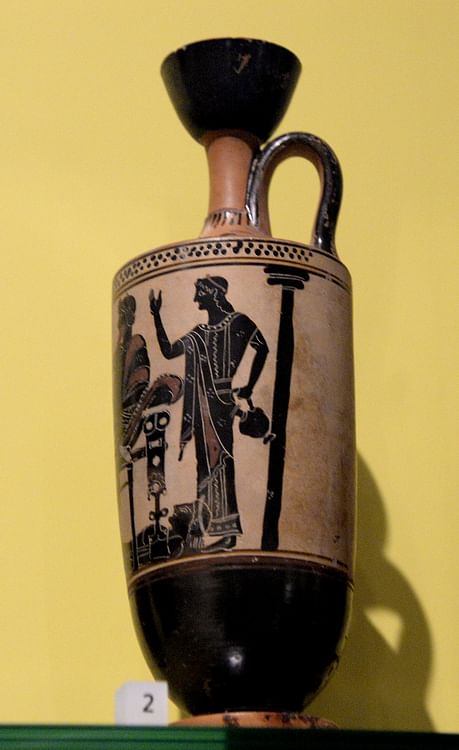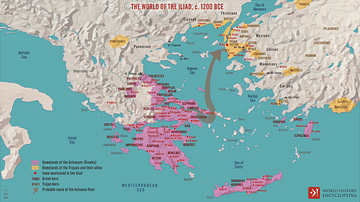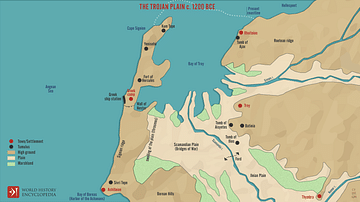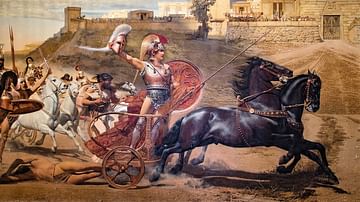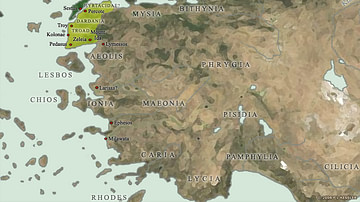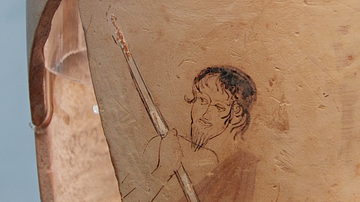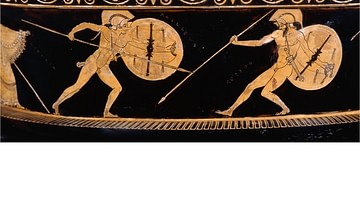Illustration
Oil, especially olive oil, was stored in specialized Greek pottery; lekythos (pleural, lekythoi). Many lekythoi were found inside tombs; they were used to anoint the dead bodies of single men. Mainly dull red and black paints were used by artists to decorate these ceramics. Prince Hector was the son of king Priam and queen Hecuba of Trojan. He was the greatest fighter for Troy during the Trojan War. Attica, Greece, circa 500 BCE. (National Museum of Scotland, Edinburgh, UK)
Cite This Work
APA Style
Amin, O. S. M. (2015, November 22). Lekythos with the Ransom of Hector Scene. World History Encyclopedia. Retrieved from https://www.worldhistory.org/image/4199/lekythos-with-the-ransom-of-hector-scene/
Chicago Style
Amin, Osama Shukir Muhammed. "Lekythos with the Ransom of Hector Scene." World History Encyclopedia. Last modified November 22, 2015. https://www.worldhistory.org/image/4199/lekythos-with-the-ransom-of-hector-scene/.
MLA Style
Amin, Osama Shukir Muhammed. "Lekythos with the Ransom of Hector Scene." World History Encyclopedia. World History Encyclopedia, 22 Nov 2015. Web. 10 May 2024.
